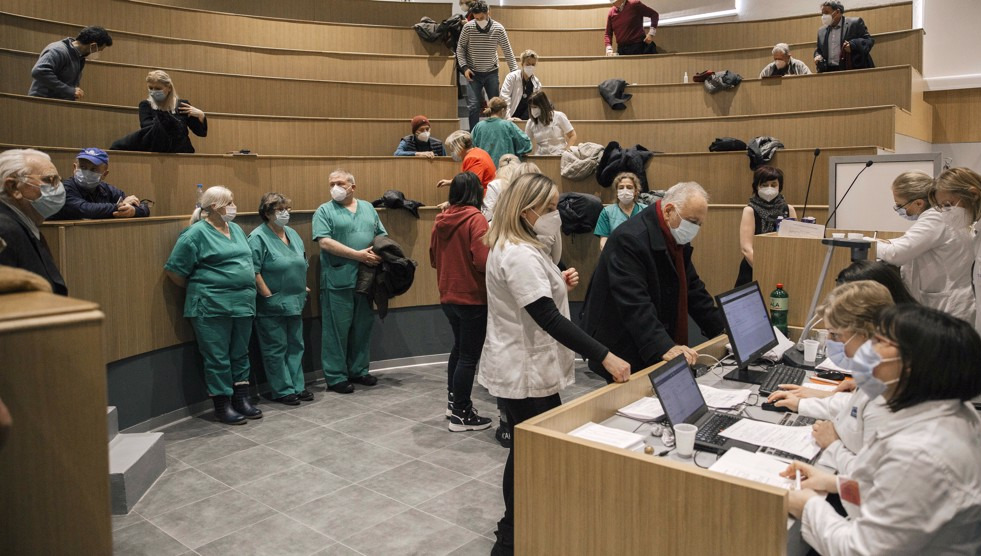
Medical workers and members of Serbian Academy of Sciences and Arts wait to receive a vaccine at a clinic in Belgrade. (Photo: AFP)
Belgrade, January 18 (RHC)-- Rising doubts spark mistrust among people and even officials about a vaccination campaign against the coronavirus pandemic in southeastern Europe. Efforts to vaccinate people against the virus in countries like the Czech Republic, Serbia, Bosnia, Romania and Bulgaria are facing hurdles due to uncertainties in the society, including among former presidents and even some doctors.
Feeding on the prevailing distrust are theories that vaccines made by European and American companies would inject microchips into the body of those who receive the shots.
The inoculation campaigns are already off to a slow start in the region. A recent Balkan study warned that “a majority across the region does not plan to take the vaccine, a ratio considerably lower than elsewhere in Europe, where a majority favors taking the vaccine.” Some 200,000 people have so far applied for the vaccine in Serbia, with a population of 7 million people.
Serbian authorities, who received their shots in front of cameras to encourage people, however, are split over the type of the vaccine. There are divisions among the authorities over whether to get the US-made Pfizer-BioNTech vaccine or Russia’s Sputnik V. “Serbs prefer the Russian vaccine,” read a recent headline of an official newspaper.
Officials announced that 38% of those who have applied to take the shots favor the Russian vaccine, while some 31% want the Pfizer-BioNTech version.
On Saturday, Serbian President Aleksandar Vucic greeted the shipment of one million doses of the Chinese Sinopharm vaccine with the announcement that he will receive the shot to show it is safe.
In the Czech Republic, where surveys show some 40% reject vaccination, protesters at a big rally against government virus restrictions in Prague demanded that vaccinations not be made mandatory. Former president Vaclav Klaus told protesters that vaccines are not a solution and that they need to get exposed to the virus to gain immunity.
"They say that everything will be solved by a miracle vaccine,” said Klaus. “We have to say loud and clear that there’s no such a thing. … I am not going to get vaccinated.”
Another study published before the regional vaccination campaign started in December said that distrust about vaccines was prevalent among nearly 80% of people in the Western Balkan countries.

